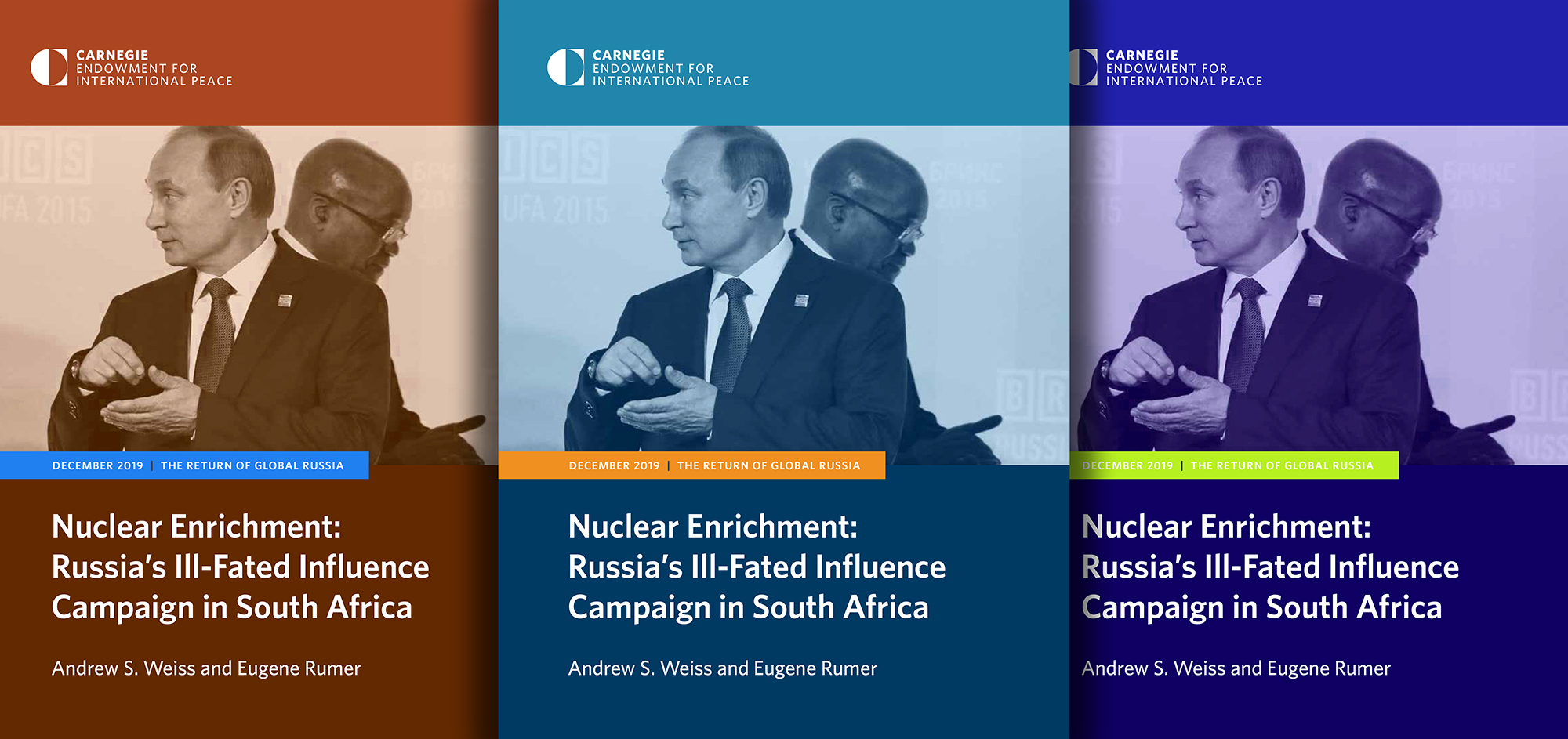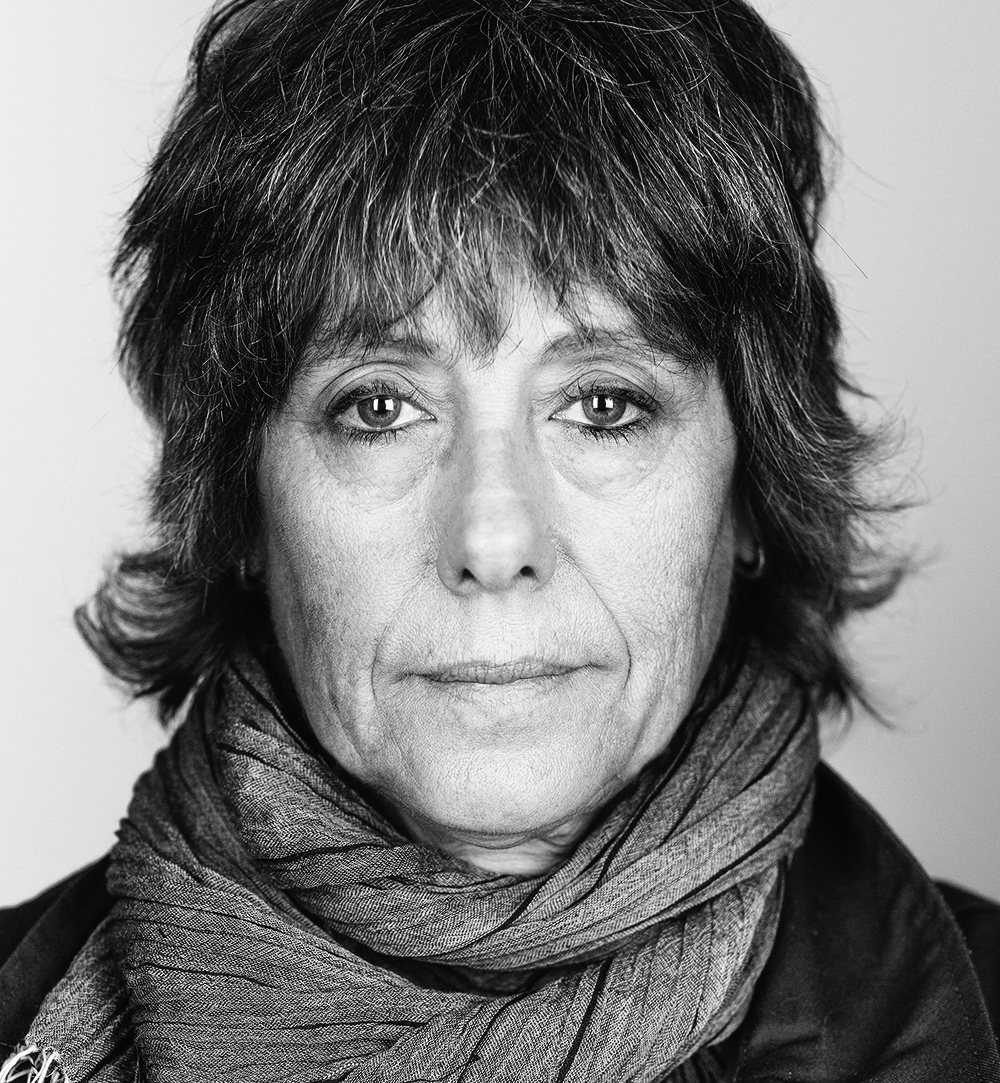While the Russian nuclear deal with South Africa made no economic sense to technocrats at Rosatom, Russia’s nuclear power monopoly which is controlled ultimately through a Kremlin oversight board, for Putin it made geopolitical sense and he strongly advocated for it.
These are some of the insights of a just-released report by the Carnegie Endowment for International Peace. The report, “Nuclear Enrichment: Russia’s Ill-Fated Influence Campaign in South Africa”, by Andrew S Weiss and Eugene Rumer, is based on research supported by the United States European Command with additional support from C5 Capital.
The authors found that ongoing investigations of high-level corruption during what has become known as the capture of the state under Zuma’s leadership, “shed remarkable light on how the Kremlin operates in Africa and other parts of the world”.
“In retrospect, the sustainability of Moscow’s embrace of South Africa was highly questionable due to its paltry tool kit. Russian involvement in the South African economy is minuscule compared to that of other trading partners such as the EU, China, the United States, India, and the UK, accounting for a mere 0.4% of South Africa’s foreign trade,” the report notes.
Absorbing the report, one is given pause to ponder the crux of South Africa's law on treason which states that “any individual who conspires or incites others to attempt to overthrow the lawfully constituted government, alter the laws or policy of the country by force, usurps the power of the government or incites invasion will be guilty of treason”.
Former president Jacob Zuma’s secret deal with Russia falls slap bang into “usurps the power of the government” category, the study clearly reveals.
It provides a multidimensional, detailed and up-to-date understanding (including testimony to the Zondo commission) of the relationship between former President Jacob Zuma and Russia and attempts by both to circumvent the country’s laws to push through the secret deal.
The report reveals the behind-the-scenes activism which culminated in the country’s courts halting the deal in April 2017.
It sets out how Ecodefense!, a Russian environmental non-government organisation, had leaked a copy of the confidential September 2014 agreement between South Africa and Russia to two South African activists.
“The contents of the document made it difficult for the government to convince anyone that it was conducting proper tender-based bids from French, South Korean, and US firms, let alone subjecting the deal to parliamentary review.
“The activists, Makoma Lekalakala and Liz McDaid, won considerable acclaim for stirring grassroots opposition and organising legal challenges,” Weiss and Rumer write.
“Neither Zuma nor the Russian government appeared to fully appreciate the controversy that they had created or the scale of opposition to the deal”, says the report.
It cites former finance minister Nhlanhla Nene’s testimony to the Zondo commission that Zuma had been “fully committed to proceeding with the deal at the BRICS summit in Russia in July 2015, even though key financial details had not been resolved”.
Nene had raised concerns with Zuma that the financial details of the deal had been kept from treasury officials “only for Zuma to criticise him for allegedly failing to fulfil his duties”.
Nene was removed in a late-afternoon firing by Zuma on 9 December 2015 and replaced by Des van Rooyen. A national outcry forced Zuma to reappoint former Minister of Finance Pravin Gordhan — a man who had warned the president as far back as 2011 that the deal was highly irregular.
How the relationship with Russia grew from lukewarm in the Mbeki years to cooking with gas during the Zuma era was due, say the authors, to the fact that “the Kremlin often takes advantage of cultures of corruption, and, to a certain extent, its efforts in South Africa fit this broader pattern”.
“The high-water mark for Russia-South Africa relations occurred during Jacob Zuma’s presidency (2009–2018).”
The authors report that Russian engagement with South Africa during the Zuma years was “deeply rooted” and relied on a “web of relationships at the highest levels of both governments, the promotion of multi-billion-dollar projects involving state-owned companies particularly in the energy sector, and the leveraging of Cold War-era ties forged during South Africa’s period of national liberation”.
An interesting observation with regard to these Cold War-era ties is that the report noted that generational change in South Africa was “gradually eroding Russia’s other source of leverage — the impressive degree of support the Kremlin gave to the ANC during the apartheid era.
“Modern-day Russia offers little in the way of practical assistance for helping South Africa deal with its deep-set economic and societal challenges.
“That is likely to limit its attractiveness as a partner to future generations of South African leaders. Their attitudes and priorities are more likely to be shaped by the country’s complex political life and development needs than by apartheid-era nostalgia.”
While Russia was still warming the cockles of Zuma’s heart, Moscow’s strategy was “multifaceted, capitalising on well-established close ties with Zuma, a former African National Congress senior intelligence official with extensive Soviet bloc connections”.
Putin, as well as other senior officials, had pursued a series of initiatives including pushing for South Africa to become a member of the BRIC (Brazil, Russia, India, and China) grouping and the launch of “ambitious forms of co-operation between state-backed energy interests primarily in the nuclear sector”.
In exchange, the South African government “appeared to set aside some of its traditional principles — specifically, noninterference in the affairs of sovereign states, the inviolability of borders, and opposition to regime change”.
After the Russian invasion of Crimea in 2014, South Africa abstained from voting on a UN General Assembly resolution in March 2014 in support of Ukraine’s territorial integrity and also “avoided any direct criticism of Russian actions against Ukraine”.
“For his part, Zuma justified the move by insisting, weakly, that it was important to close ranks with fellow BRICS members on the matter.”
Key players in the Russian national security establishment viewed civil nuclear power exports as a tool for projecting influence abroad while creating revenue streams. But this type of co-operation, the report noted, was often a “two-edged sword”.
“On the one hand, costly projects such as the one pushed by Zuma typically make little economic sense for the purchasing country, spurring uncomfortable questions about who stands to benefit.
“On the other hand, heavily subsidised projects pursued mainly for geopolitical reasons risk saddling Russia’s nuclear power monopoly Rosatom with burdens it can ill afford,” say the authors.
History of the Russian tango
Discussions with Moscow on nuclear co-operation accelerated shortly after Zuma became president in 2009.
“From the outset, there was a race under way between the protagonists of the Zuma/Russia nuclear deal and the many checks to it which, early on, were activated.
“As early as the autumn of 2011, Zuma told then finance minister Pravin Gordhan that he wanted to award the entire construction deal to Russia. He brushed aside Gordhan’s insistence on following established procedures for state procurement, according to Gordhan’s written testimony to the State Capture commission.”
Gordhan had “warned Zuma that failing to follow the established procedures could land the president in trouble similar to the fallout over the earlier arms sales scandal that had nearly ended his political career”.
The report recounts how in August 2014, Zuma unexpectedly travelled to Russia “accompanied only by intelligence minister Mahlobo and a deputy foreign minister”.
David Mahlobo, who had no intelligence or law enforcement experience, had been appointed by Zuma as Minister of State Security in May 2014.
Despite its prominence on the bilateral agenda, nuclear co-operation “was conspicuously absent from the South African government’s official readout of the visit”.
Mahlobo later attempted to explain the visit, saying Zuma had travelled to Moscow for medical treatment after he had been poisoned.
“Just three weeks later, in Vienna, South African and Russian representatives signed a formal agreement on strategic nuclear co-operation.
“The agreement was kept confidential and the episode only heightened suspicions about the true nature of the two countries’ developing nuclear relationship.”
During his first year in office, Mahlobo had met Russian Security Council Secretary Nikolai Patrushev at least four times.
But the authors report that “Zuma’s excesses”, which ultimately led to his resignation in February 2018, “generated a strong pushback from various quarters. South Africa’s competitive political system, civil society, judiciary, and news media served as dogged champions of accountability and transparency”.
“South Africans, from vantage points inside and outside of government, closely scrutinised Russian activities, meticulously documented them, and launched a series of political and legal challenges in response. Their ability to challenge a controversial head of state stands as a powerful example for policymakers elsewhere on the continent and in other parts of the world who are contending with Russian malign activities.” DM
Read the full report here:
https://carnegieendowment.org/files/Weiss_Rumer_SouthAfrica_v2.pdf





